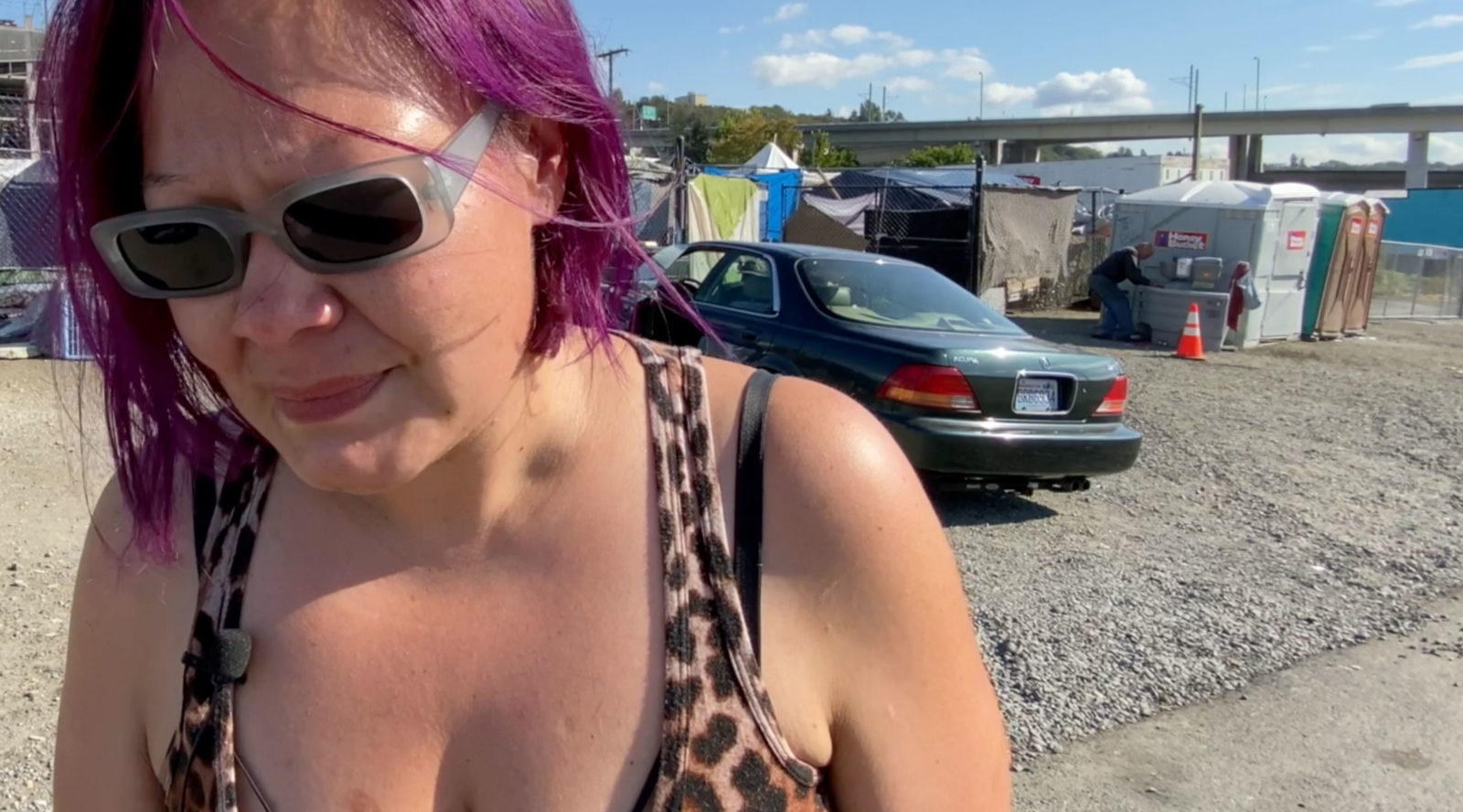Last week, hundreds of senior citizens from the Chinatown-International District (C-ID) marched into SODO. Protesting Dow Constantine’s homeless megaplex, they’re worried about the public safety impact on the C-ID, which is just a block away.
During the rally, a homeless couple stopped to give the marchers a piece of their mind. “Go back to your country,” they yelled, leaving the elders stunned by the racist remarks.
“Well, they can go back to their country too,” said community advocate Matt Chan, who didn’t appreciate the verbal attack.
Andrea Suarez with the homeless outreach group We Heart Seattle recognized the couple in the video. “I was like, no! I’ve known them for over a year. We provided outreach to them initially on Western Avenue,” she said.
She wanted me to get their side of the story, noting their comments were “heat of the moment, they don’t understand the dynamics of what’s going on politically.”
So we went back and found Steffanie Adams and Jamey Edwards living at this encampment on the site of the proposed megaplex. I showed them the video, and they immediately expressed remorse and regret.
“I can’t believe it that I yelled those obscenities, so I apologize,” says Adams.
Adams now says she finally understands what the Chinatown elders are facing. “I know it’s not their fault. And I know what they’re trying to protect,” she says.
But Adams also wants them to know not all homeless are criminals. In her case, she says she’s struggling with a fentanyl addiction, which is the main reason she’s still on the streets. “Even right now, I have pain because I need to take some. I wouldn’t wish this on anybody.”
Chan says the C-ID and the homeless are being unfairly pitted against each other: “We’re not protesting the unhoused. We’re protesting unjust policies by the government that they impose on us time and time again.”
Chan says to avoid any more confusion, there needs to be more dialogue.
“Well, maybe if we sent someone down there earlier and said, “Look, we’re going to come down there — were protesting the government.…If you want to join us, you can.”
That gesture could also help build a bridge between both communities.

